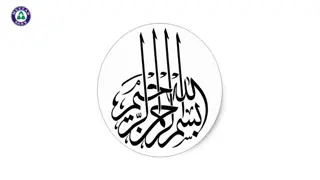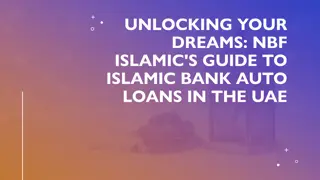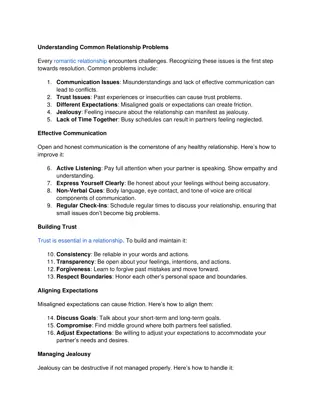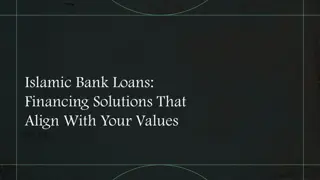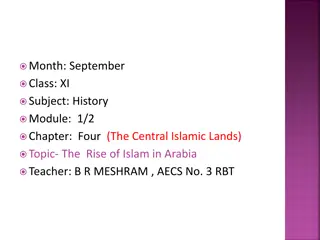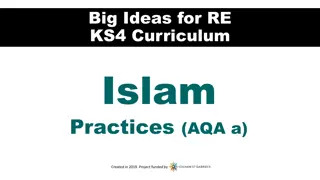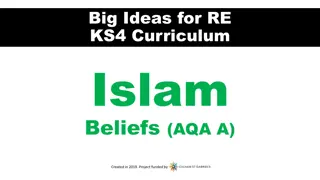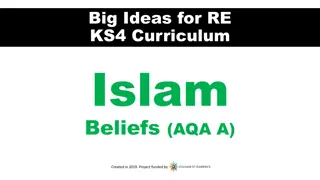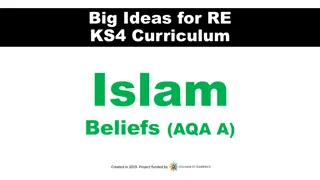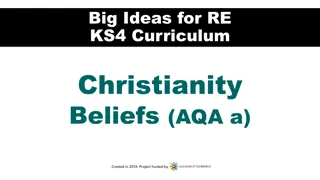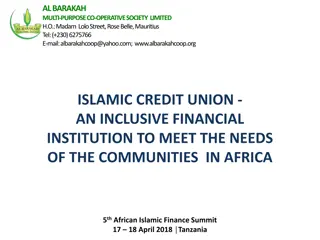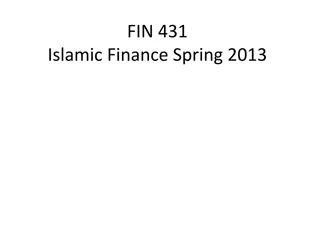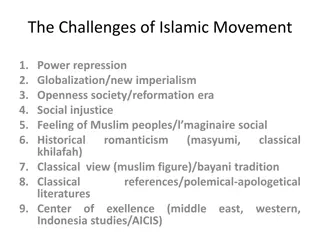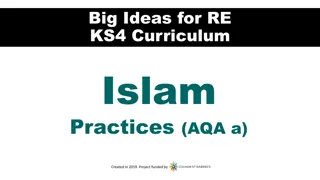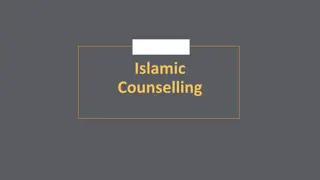Understanding Islamic Beliefs on Life After Death in KS4 Curriculum
Explore the key Islamic beliefs surrounding life after death in the KS4 RE curriculum, focusing on concepts such as Akhirah, human accountability, and heavenly realms. Engage students through activities like storytelling, discussions on angelic scribes, and designing diagrams to illustrate Islamic views on death and judgment.
Download Presentation

Please find below an Image/Link to download the presentation.
The content on the website is provided AS IS for your information and personal use only. It may not be sold, licensed, or shared on other websites without obtaining consent from the author. Download presentation by click this link. If you encounter any issues during the download, it is possible that the publisher has removed the file from their server.
E N D
Presentation Transcript
Big Ideas for RE KS4 Curriculum Islam Beliefs (AQA A) Created in 2019. Project funded by
7: 7: This life or the next life: which is This life or the next life: which is more important? more important? From the spec Life after death (Akhirah), human responsibility and accountability, resurrection, heaven and hell. BIG IDEAS LEARNING BELIEFS: about life after death CONTEXT: setting angels, revelation and prophets in context of judgment Learning outcomes: Explain Islamic beliefs in Akhirah Relate beliefs in Akhirah to free will Relate beliefs in Akhirah to Muslim principles and practices for life RESOURCES 7 Akhirah
Lesson 7 Recap the story of Marla and the crocodile. Write these words on the board or on paper around the board: God, Qur an, prophets, heaven, hell. Can students connect each of these words to an element in the story? What could represent God, prophets, hell.. etc? Recap al-Kiram al-Katubin, the angelic scribes. Ask: are angel actions recorded? No, because they cannot disobey God. Ask: why are human actions recorded? Discuss. Using 7 Akhirah worksheet, design a diagram to explain what happens at death and judgment. Extension: add al-Kiram al-Katubin to the diagram. Ask students to identify what guidance Muslims are given to achieve paradise and avoid hell (Qur an, prophets, angels). Add to diagram. Answer the question: this life or the next life: which is more important? Share answers.
Do now : Marla and the Crocodile (loosely adapted from an idea by Chris Hewer, chrishewer.org) Marla lives in India. Her village lies next to a fast-moving river. Sometimes the villagers call it Mother River because it sustains life. They fish in the river, sell the fish at market, and travel up and down the river in small boats to trade. Sometimes the villagers call it angry river because it also brings dangers; floods destroy houses, waves sweep people off banks and rafts and crocodiles and snakes live in the water. The children learn to respect Mother River from an early age. They learn to swim and sail, to avoid certain rocks and waterfalls and spot signs of predators, both for themselves and others. Marla s parents take their responsibilities very seriously. They have made sure all their children can swim, manage themselves and know the dangers. One night Marla steals her father s raft and takes it up the river. She wants to find turtles that her friend says live in a quiet pool and come out at night. She drifts towards the pool, but as she approaches a sudden wave overturns her raft. She starts to swim to shore but suddenly freezes. A huge crocodile, as still as a log, has been watching her. Slowly, lazily, it turns towards her and begins to paddle, its yellow eyes gleaming on the surface
In Islamic tradition the two kiraman katibin ("honourable scribes"), are two angels called Raqib and Atid, believed by Muslims to record a person's actions. The Qur an refers to them in two places, in 50:16-18 and by name as 'Noble Recorders' in 82:10-12.The work of the kiraman katibin is to write down and record every action of a person each day. One angel figuratively sits on the right shoulder and records all good deeds , while the other sits on the left shoulder and records all bad deeds. After that person's death, it is said that on the Day of Judgement each person will be confronted with this record of their deeds in life . Are angels actions recorded? Why are human actions recorded?
Ahkirah worksheet Using the information on your worksheet , create a diagram to explain what happens after death in Islamic belief (do not draw God or prophets). Extension Add al Kiram al Katubin to the diagram. What guidance are Muslims given to achieve Paradise and avoid Hell? Add these to your diagram.
Exit ticket This life or next life: which is more important ?




